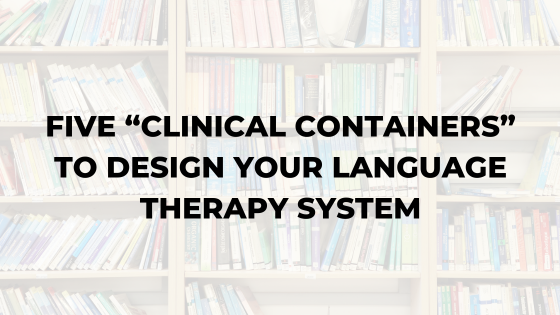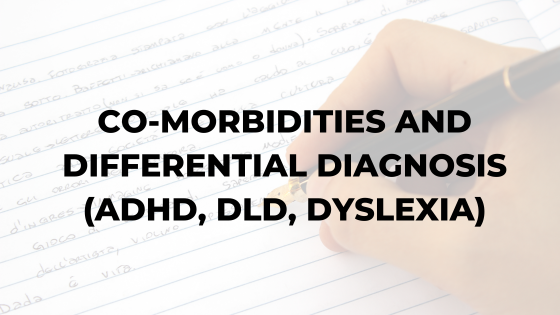In episode 255 of De Facto Leaders, I elaborate on the concept of using vocabulary as a large “container”, so you can design sessions efficiently without sacrificing quality. I talk about why more experienced clinicians often struggle to make their interventions scalable, and why this gets in the way of carryover. I also share the…
Blog
Goals and Accommodations for Executive Functioning
Writing goals for executive functioning can be challenging because it’s very hard to quantify. Additionally, because executive functioning impacts almost every functional skill we engage in, almost every goal on any IEP or therapy plan is technically an executive functioning goal. When we’re focusing on other areas such as writing, reading, math, language, or other…
Resource List: Scaffolding syntax, semantics, language evaluations
I recently compiled a list of my top resources for syntax and semantics, and I wanted to share it on the blog. This list was designed with the following questions in mind: “What does a therapy session look like when you’re doing semantic feature analysis or studying definition syntax?” “How do you do syntax and…
Following directions goals have become controversial
One of the most disheartening things I’ve seen in clinical communities is how polarizing certain topics have become. A topic on that list would be “following directions” goals. While I’d agree that goals for following directions often end up being too compliance-focused in the way they’re implemented, I’d caution people from throwing the baby out with the…
2024: All-Time Top 5 Dr. Karen Pieces
One of my go-to, re-watchable comfort movies is High Fidelity. It’s definitely in my “all time top 5” (other High Fidelity nerds will get the reference). For those who haven’t seen it, the main character in the movie is constantly making “all time top 5” lists about various things (usually music, but sometimes career paths and other things). He…
National Literacy Month Series: The Full Line-Up
In the month of September 2024, the Be Podcast Network partnered with Reading Is Fundamental for a campaign designed to spread awareness of effective literacy practices. As part of this effort I hosted a series of guests on De Facto Leaders to speak on topics relating to language, literacy, and advocacy. Reading Is Fundamental is…
Reference list guidelines and ethically sharing online content
Since I provide a lot of online content, I often get asked if people can share my information for professional presentations, with clients, or with colleagues. In this post, I wanted to share some guidelines you can use for sharing online content, as well as some things that are specific to resources I offer. If…
What’s better than an executive functioning lesson plan?
I offer a free training on executive functioning where I talk about the common mistakes school teams make. In this training define what executive functioning is, and some big picture ideas about how to support kids effectively. The five skills I discuss in that intervention framework are: 1. Self-talk2. Time-perception3. Future Pacing4. Episodic Memory5. Encoding Today,…
Co-morbidities and Differential Diagnosis (ADHD, DLD, Dyslexia)
I wanted to share this episode from the De Facto Leader’s podcast to make it accessible on the blog since this is such as common question for my readers and listeners. When kids need support with language, reading/writing, and executive functioning, they often have multiple diagnoses. This makes both treatment planning, diagnosis, and determining eligibility…
Executive Functioning Support: Three Paradigm Shifts for School Teams
As a professional field, we’re getting stuck in old ways of thinking when it comes to designing services for students experiencing executive dysfunction. When we think of “therapy” the first thing that comes to mind is a clinician sitting in a chair saying things like, “And how does that make you feel?” or a clinician…









